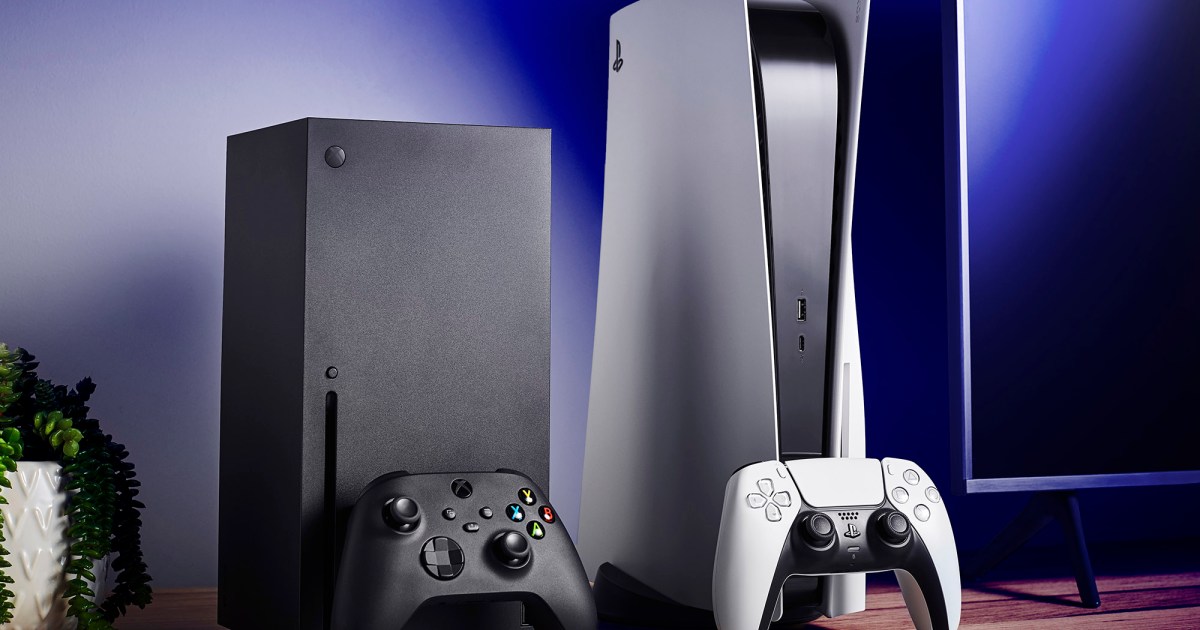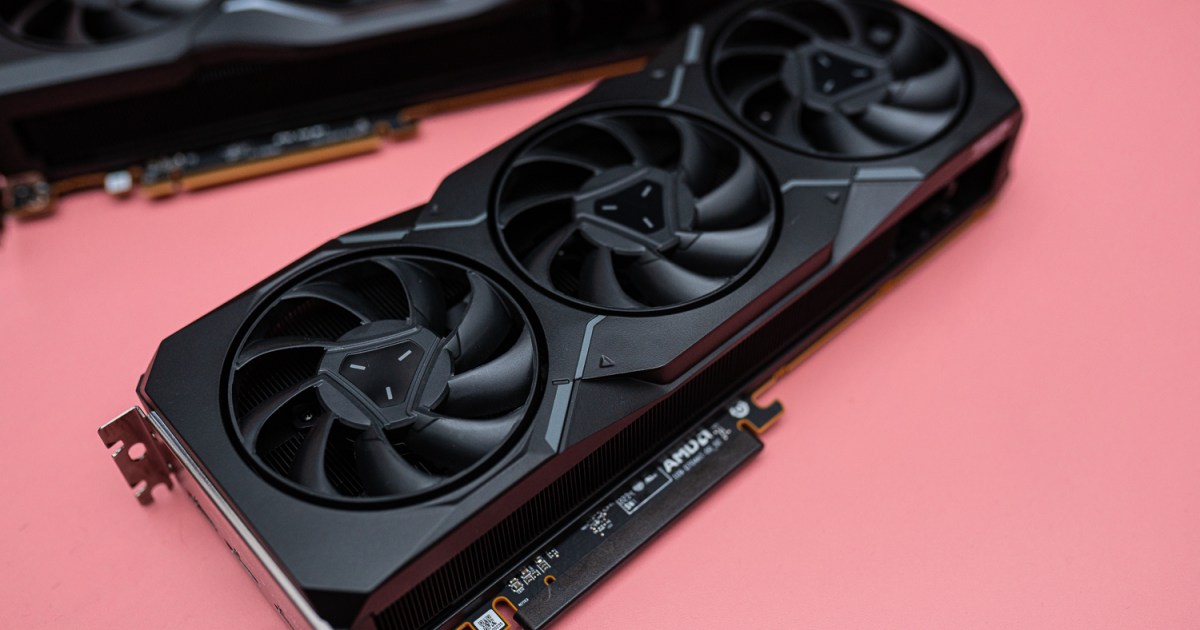After a long and busy 12 months, 2024 is officially in the books. Players have a few weeks to rest before the video game release calendar picks up in February with a barrage of major releases. That’s a problem for next month, though. Until then, we’ve still got some time to reflect on what was a rollercoaster year for the gaming industry, full of surprise hits, total flops, and surprising no shows.
At the center of all that was the three pillars of mainstream gaming: Sony, Microsoft, and Nintendo. While their power may be waning in the age of portable PCs like the Steam Deck, these platform holders are still the watercooler conversation starters whose every move generates buzz. This year, all three companies found themselves in a strange spot. PlayStation 5 and Xbox Series X hit the awkward midpoint of their lifespans, while the Nintendo Switch was left to tread water after its much anticipated successor was pushed out of 2024. All three would have to get creative if they were going to end the year strong.
The good news is that all three pulled that task off, even if no one excelled. Each company had an asterisk on its record that created an uneven year no matter which console you played on. Continuing last year’s tradition, we’re once again closing out the year by handing out final grades to Sony, Microsoft, and Nintendo. All three passed, but they’ll all need to study harder if they’re going to become A students in 2025.
PlayStation
If I were a tough grader, I’d have good reason to flunk the PS5 this year. Sony’s year was full of flops and disappointments that made its 2024 look dire in a vacuum. Its biggest hardship came in the form of Concord, a game that was meant to usher in PlayStation’s live service future. Instead, it was an immediate failure that was taken offline in weeks and the studio behind it was shuttered. That one costly disaster may have put years of planning in jeopardy, single-handedly changing what PlayStation’s future will look like.
That bad news was coupled by some soft letdowns. The much anticipated PS5 Pro finally launched this year, but with underwhelming specs considering its eye-popping price tag. That made the system a slow starter, one that raised questions about how much incremental power is really necessary in a console. It didn’t help that the system’s AI upscaling tool, PSSR, was a bit buggy at launch, too. Elsewhere on the hardware front, Sony seemed to all but abandon its VR ambitions, offering very little software support for PlayStation VR2 (it’s biggest upgrade this year was PC support). At times, it felt like Sony’s hardware business had hit a brick wall.
If I were only looking at those lowlights, though, it would be a reductive view of what was a strong year for PlayStation overall. Sony’s wins didn’t come from hyped up first-party exclusives like Marvel’s Spider-Man 2, but through unexpected surprises that helped expand the system to new audiences. The crown jewel of the crop was Astro Bot, which found Sony once again making the kind of all-ages platformer that helped build the original PlayStation. Helldivers 2 emerged as a live service success story that counter-balanced Concord‘s failure. Even Stellar Blade landed as a pleasant surprise, allowing a Korean developer to find international success.
In between those peaks, we got a handful of third-party exclusives that gave the PS5 the best game lineup of any console this year. Final Fantasy VII Rebirth delivered the praise that Final Fantasy XVI couldn’t quite achieve in 2023, while Bloober Team’s Silent Hill 2 pulled off the impossible task of remaking one of the best games of all time in a satisfying manner. Those highs were enough to round out an uneven year where Sony leaned heavily on unnecessary double dips like Horizon Zero Dawn Remastered. It may have been the PS5’s best and worst year in one.
Grade: B
Xbox
Since the launch of the Xbox Series X in 2020, it was clear that Microsoft’s console was going to have an unusual lifespan. Microsoft made it clear early on that it wasn’t necessarily trying to pump out killer apps so much as it was trying to make Game Pass a lifestyle subscription service that every gamer needed. 2024 would take that experiment to some truly unpredictable places that left Xbox fans with whiplash; we seemingly alternated between terrible news and great games every month.
The bad side was very bad. Xbox kicked the year off with mass layoffs, which shut down both Arkane Austin and Tango Gameworks. The latter was incredibly puzzling considering that the studio had developed perhaps the Series X’s best exclusive, Hi-Fi Rush, just one year prior. Later in the year, Microsoft rolled out a convoluted Game Pass price hike that turned the “best deal in gaming” into a pricey proposition. It didn’t help that some of the service’s biggest games didn’t exactly pan out as expected. Both Stalker 2 and Microsoft Flight Simulator 2024 were buggy messes at launch, while Senua’s Saga: Hellblade 2 and Starfield: Shattered Space landed as underwhelming releases.
It was a constant PR crisis for Xbox in 2024, even when it wasn’t warranted. Xbox’s decision to release certain exclusives on competing platforms should have been a cause for celebration as Microsoft eroded the annoying exclusivity wall that divides consoles. Instead, the move fueled console war outrage. Similar, Xbox made great strides to make its game more accessible than ever, bringing Game Pass to devices like Amazon Fire Stick. That too was criticized thanks to the company’s “This is an Xbox” ad campaign, which implied that any device that could run its games was essentially an Xbox. That move rubbed console purists the wrong way, but I see the underlying message as a positive step forward for video games.
While it wasn’t a huge year for exclusives, Xbox delivered where it mattered. It ended the year strong with Call of Duty: Black Ops 6 and Indiana Jones and the Great Circle, two of the best-received games of this Xbox generation. In route to those tentpole release, we got a steady stream of “day one” third-party releases that still sold the service’s value. Dungeons of Hinterberg and Kunitsu-Gami: Path of the Goddess are both sleeper hits that ended up on Digital Trends best 10 games of 2024 list. With that in mind, I’m willing to let Xbox out of 2024 with a perfectly good, if unremarkable grade. I expect to see some big improvement in 2025, though.
Grade: B-
Nintendo
After receiving a coveted A grade in last year’s report, Nintendo had a big task ahead of it — and it sounded like it would have no problem delivering. After all, 2024 was surely going to be the year we finally got the Nintendo Switch 2, bringing a bevy of heavy hitting exclusives like Mario Kart 9 or Metroid Prime 4: Beyond.
Well … that didn’t happen. After all the anticipation, Nintendo’s new console was a total no show. Nintendo would acknowledge its existence after years of speculation, but it stopped short of actually showing it off or announcing so much as a spec. That left Nintendo in a weird spot when it came to software. It was clear that the company’s most celebrated developers were quietly working on new games for the platform, leaving the B-squad to fill out the Switch’s final full year. To Nintendo’s credit, it delivered at least one exclusive a month from January to December, but the actually lineup was eclectic.
Very few Switch exclusives released in 2024 were must-own library additions. The closest ones were Super Mario Party Jamboree and The Legend of Zelda: Echoes of Wisdom, but nothing rose to the level of Super Mario Odyssey or Fire Emblem: Three Houses. Instead, we got a buffet of niche games and odd remakes. It’s not that games like Mario vs. Donkey Kong or Nintendo World Championships: NES Edition weren’t welcome on Switch; it’s just that these were the console’s primary games rather than quirky filler. Those games didn’t always deliver either, as games like Endless Ocean: Luminous and Princess Peach: Showtime! felt more like underdeveloped experiments than the kind of polished games we’ve come to expect in the Switch’s lifespan.
Even if it was an underwhelming year overall, the experimental nature of Switch’s year occasionally led to the kind of highlights that can only happen when a publisher isn’t being precious. Emio — The Smiling Man is a fantastic revival of Famicom Detective Club that I don’t think we would ever get outside of a year like this. Splatoon 3‘s underappreciated Side Order DLC is a true hidden gem, and I can’t complain about a full remake of Paper Mario: The Thousand-Year Door. The peaks weren’t exactly high, but this is the kind of strange year that I imagine I’ll look back on with nostalgia in a few years when Nintendo is back in its usual rotation of predictable hits.
Grade: C+








